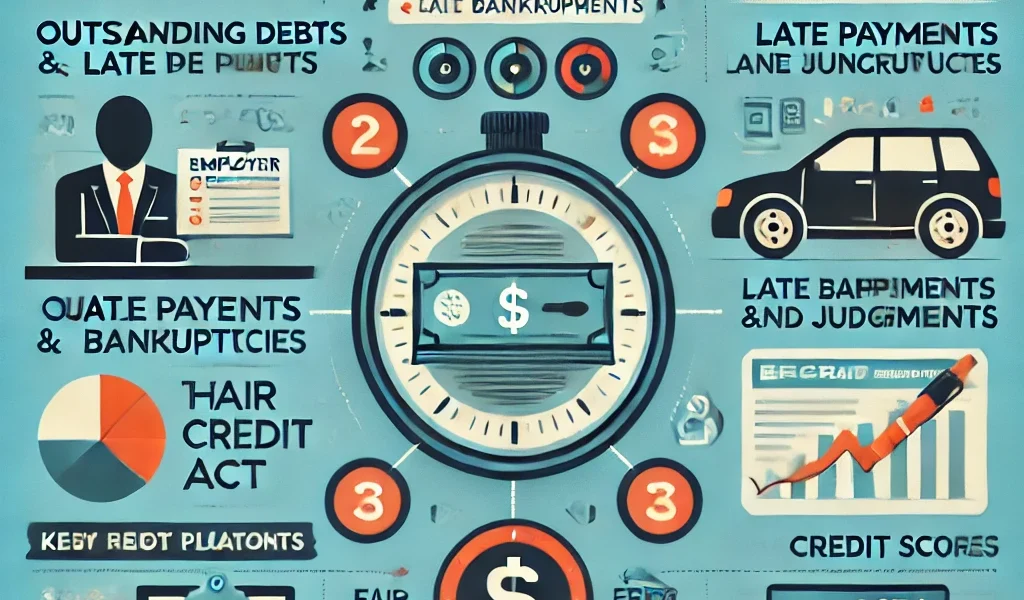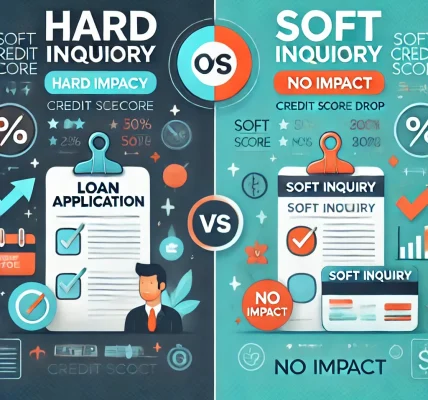Introduction
Many job seekers may not realize that their financial history can play a role in their employment prospects. Some employers conduct credit checks as part of the hiring process, which can impact a candidate’s chances of securing a job. Understanding how debt and credit history affect job opportunities is crucial for anyone navigating the job market.
Why Do Employers Check Credit Reports?
Employers use credit checks primarily to assess financial responsibility, especially for roles involving financial management, security clearance, or handling sensitive data. They believe that a person’s financial behavior may reflect their level of responsibility, decision-making skills, and risk management abilities.
Industries That Often Conduct Credit Checks:
- Financial services (banks, investment firms, insurance companies)
- Government and security positions
- Executive and managerial roles
- Roles that require handling large sums of money
What Employers Look for in a Credit Report
Unlike lenders, employers do not check your credit score but instead review your credit report. They focus on:
- Outstanding debts: High levels of unpaid debt might raise concerns.
- Late or missed payments: A pattern of late payments may indicate financial instability.
- Bankruptcies: Can be seen as a red flag in certain industries.
- Judgments and liens: Legal actions taken against a candidate due to unpaid debts.
Can Bad Credit Prevent You from Getting a Job?
While bad credit alone doesn’t automatically disqualify you from employment, it can influence hiring decisions, especially in sensitive roles. Employers may view financial distress as a potential risk factor for fraud, theft, or lack of reliability.
Factors That May Mitigate Negative Credit History:
- Time Since Negative Items Appeared: Older financial issues may have less impact.
- Efforts to Improve Credit: Employers may appreciate a proactive approach to debt management.
- Nature of the Job: A credit check is more relevant for financial positions than for creative or technical roles.
Your Rights Under the Fair Credit Reporting Act (FCRA)
The FCRA provides protections for job seekers when it comes to employer credit checks. Here’s what you need to know:
- Employers Need Your Permission: An employer must get written consent before checking your credit report.
- You Have the Right to Know If Credit Was a Factor: If you’re denied a job due to credit history, the employer must provide an adverse action notice.
- You Can Dispute Errors: If there are inaccuracies in your credit report, you have the right to dispute them.
How to Prepare for an Employer Credit Check
- Check Your Credit Report: Obtain a free copy of your credit report from major credit bureaus (Experian, Equifax, and TransUnion) and review it for errors.
- Address Outstanding Issues: Pay off overdue accounts, negotiate settlements, or set up payment plans.
- Be Honest with Potential Employers: If you have negative marks on your report, be upfront about them and explain steps you’ve taken to improve your financial situation.
- Improve Your Credit Score Over Time: Maintain a low credit utilization ratio, pay bills on time, and avoid unnecessary credit inquiries.
- Consider Roles That Don’t Require Credit Checks: If you’re struggling with debt, applying for positions that don’t involve financial responsibilities may be a better option.
Conclusion
Debt can affect job opportunities, but it doesn’t have to be a roadblock. Understanding how employer credit checks work and taking proactive steps to manage your credit can help you navigate the hiring process successfully. By maintaining a healthy financial profile and addressing any potential red flags, you can increase your chances of landing your desired job without credit-related obstacles.




